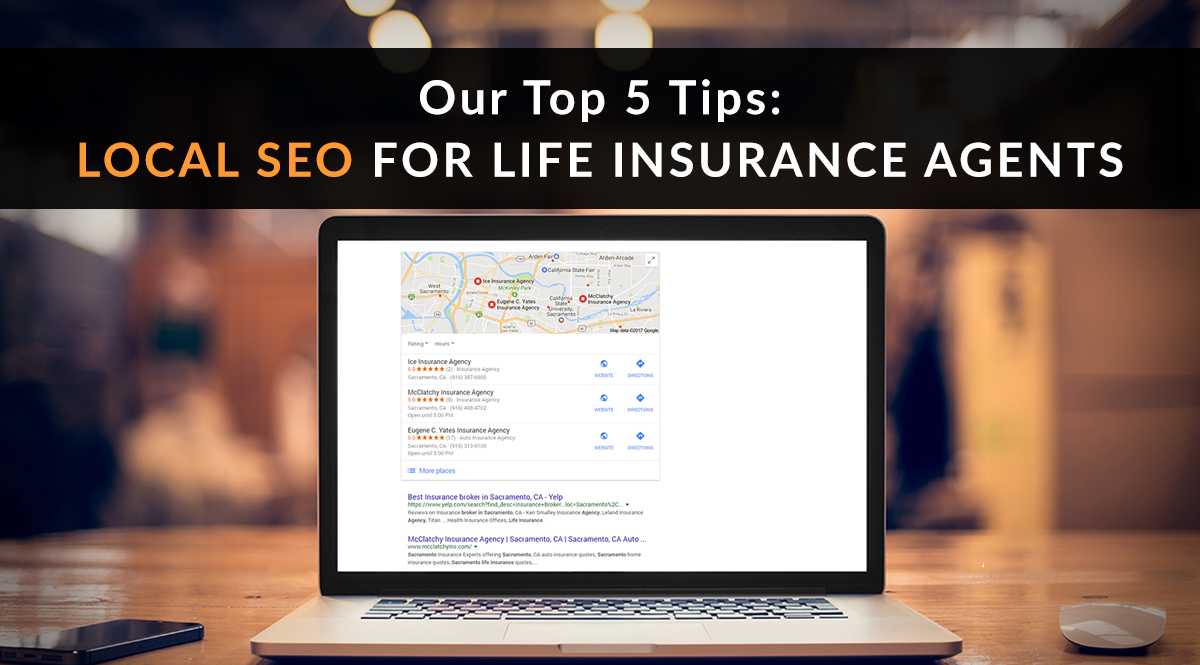Dealing with Car Insurance After an Accident
In the aftermath of a car accident, dealing with the insurance companies can feel like an overwhelming task, like navigating a bureaucratic labyrinth. But staying informed and proactive can help you protect your rights and ensure a smooth claims process. Here’s a comprehensive guide to help you navigate the insurance maze.
What to Do After a Car Accident
The moments following an accident are crucial. Here’s a step-by-step guide to help you gather essential information and protect your interests:
1. Ensure Safety: Check yourself and others for injuries. Move vehicles to a safe location if possible, and turn on hazard lights.
2. Exchange Information: Get the other driver’s name, contact details, insurance company, and policy number. Take photos of both vehicles and the accident scene.
3. Report the Accident: Notify the police and your insurance company promptly. Provide a detailed account of the accident, including the time, location, and any witnesses.
4. Seek Medical Attention: Even if you don’t feel injured, it’s important to get checked out by a doctor. Injuries may not be immediately apparent.
5. Document Everything: Keep a detailed record of all expenses related to the accident, including medical bills, vehicle repairs, and lost wages. Take photographs of your injuries and property damage.
Dealing with Car Insurance After an Accident
Getting into an automotive accident can be an anxious and overwhelming experience, and coping with insurance coverage shouldn’t add to the already overwhelming burden. As a responsible driver, navigating the insurance claims process effectively ensures you receive fair compensation for damages and medical expenses while protecting your financial interests. Among the crucial steps, reporting the accident to your insurance promptly and understanding your policy provisions are paramount.
Contact Your Insurance Company
In the immediate aftermath of an accident, it’s imperative to contact your insurance provider without delay—ideally, from the scene. Prompt reporting ensures your claim is processed swiftly, minimizing the chances of complications or delays. It also safeguards your rights and interests, especially in cases involving other parties. Remember, the adage holds true: “The early bird catches the worm.” So, don’t hesitate to reach out to your insurer promptly.
When reporting the accident, provide a detailed account of the circumstances, including the date, time, location, and a description of the incident. Mention any injuries sustained, property damage, and the parties involved. Your cooperation and accuracy will lay a solid foundation for a smooth claims process.
Knowing your policy’s ins and outs is like having a trusty map when navigating the insurance maze. Take the time to familiarize yourself with your coverage limits, deductibles, and exclusions. This knowledge will empower you to make informed decisions and avoid potential pitfalls. It’s like being equipped with a flashlight in the dark—you’ll be able to see the path clearly and avoid stumbling blocks.
Understanding your policy provisions ensures you’re not left in the dark when it comes to coverage. Remember, insurance is like a contract between you and your provider—knowing its terms and conditions is crucial for a harmonious relationship. Plus, it will give you peace of mind knowing you’re adequately protected.
Dealing with Car Insurance After an Accident: A Comprehensive Guide
If you’re ever involved in a car accident, dealing with car insurance can be a daunting task. But knowing what to do after an accident can save you time, money, and hassle in the long run. Here’s a comprehensive guide to help you navigate the car insurance process after an accident.
Exchange Information
After an accident, it’s crucial to obtain and exchange information with the other driver(s) involved. This includes their name, address, phone number, insurance company, and policy number. Don’t forget to note the make, model, and license plate number of their vehicle as well. It’s also a good idea to take photos of the accident scene, including any damage to vehicles and injuries.
Documenting the Details: Ensuring Accuracy and Clarity
Exchanging information after an accident is essential for documenting the details accurately. Noting the other driver’s information allows you to contact them later if necessary. Moreover, taking photos of the accident scene provides a visual record of the damage and injuries, which can be invaluable in the event of insurance disputes or legal proceedings.
By carefully documenting the incident and recording every piece of relevant information, you’re creating a solid foundation for a smooth and efficient insurance claim process. It’s like having a detailed blueprint to guide you through the complexities of the insurance system.
Dealing with Car Insurance After an Accident: A Comprehensive Guide
After the shock of an auto accident wears off, the practicalities of dealing with car insurance can be daunting. Here’s a comprehensive guide to help you navigate this process and ensure you’re fully covered.
Document the Scene
In the aftermath of an accident, it’s crucial to document the scene thoroughly. Use your phone to snap pictures and videos of the damage, injuries (if any), and the surrounding area. These records will serve as invaluable evidence for your insurance claim.
Contact Your Insurance Company
Once you’re safe and have documented the scene, it’s time to reach out to your insurance company. Report the accident promptly, providing as much detail as possible. They will assign an adjuster who will guide you through the claims process.
Cooperate with the Investigation
The insurance adjuster will investigate the accident to determine liability and coverage. Cooperate fully with their inquiries, providing all the necessary information and documentation. Your cooperation can expedite the claims process.
Negotiate with the Other Party
In some cases, the other party’s insurance company may try to offer you a settlement that doesn’t fully cover your damages. Don’t accept a lowball offer without first consulting with your own adjuster. You have the right to negotiate a fair settlement that reflects the true extent of your losses.
What if the Other Driver is Uninsured?
If the other driver is uninsured, you may be able to file a claim under your own policy’s uninsured motorist (UM) coverage. UM coverage protects you in the event of an accident with an uninsured or underinsured driver. However, keep in mind that UM coverage limits may not be as high as your bodily injury liability limits.
Get Legal Advice if Needed
If you’re seriously injured or the insurance companies are disputing liability, it’s wise to seek legal advice. An experienced attorney can help you protect your rights and maximize your recovery.
Dealing with Car Insurance After an Accident
In the aftermath of a car accident, the last thing anyone wants to deal with is insurance companies. However, it’s essential to navigate the process correctly to protect your rights and ensure you receive the compensation you deserve. Here’s a comprehensive guide to help you handle car insurance after an accident:
Seek Medical Attention
First and foremost, your health should be your top priority. Get checked out by a medical professional as soon as possible. This will not only document your injuries, but it will also provide valuable evidence for your insurance claim. Don’t downplay your injuries; even minor aches and pains can worsen over time.
Contact Your Insurance Company
It’s crucial to contact your insurance company promptly after an accident. They will guide you through the claims process, provide guidance, and assign an adjuster to handle your case. Delaying this notification could jeopardize your claim.
Gather Evidence
Collecting evidence is essential for supporting your claim. Take plenty of photos of the accident scene, including damage to both vehicles, skid marks, and any injuries. Get the names and contact information of witnesses and exchange insurance details with the other driver(s) involved.
File a Police Report
If possible, file a police report. This will provide an official record of the accident and can strengthen your case if there are disputes regarding fault or liability.
Don’t Admit Fault
Even if you believe you’re at fault for the accident, it’s important not to admit it to the other driver or the police. Stick to the facts and avoid making any statements that could harm your claim.
Cooperate with the Adjuster
Your insurance adjuster will contact you to gather information and assess the damages. Be cooperative and provide all necessary documentation. However, don’t hesitate to ask questions or challenge their findings if you believe something is inaccurate.
Negotiate a Settlement
Once the adjuster has evaluated your claim, they will make an offer for a settlement. It’s crucial to carefully review this offer and determine if it fairly compensates you for your damages, injuries, and expenses. Don’t be afraid to negotiate for a fair settlement that covers your needs.
Hire an Attorney (Optional)
If you’re unable to reach a satisfactory settlement with your insurance company or are dealing with complex legal issues, consider hiring an attorney who specializes in personal injury law. An attorney can represent your interests, fight for your rights, and ensure you receive the compensation you deserve.
Additional Tips
- Stay calm and collected after an accident.
- Don’t sign any documents or make any statements without consulting your insurance company or an attorney.
- Keep track of all expenses related to the accident, including medical bills, repair costs, and lost wages.
- Be patient and persistent throughout the claims process. It can take time to resolve your case, but it’s worth it to protect your rights and ensure you’re properly compensated.
Dealing with Car Insurance After an Accident: A Comprehensive Guide
Car accidents can be a stressful and disorienting experience. In the aftermath, you’re probably worried about your health, your car, and your finances. Dealing with car insurance companies can add another layer of stress to the situation. But if you know what to expect, you can navigate the process more smoothly.
Filing a Claim
The first step is to file a claim with your insurance company. This can usually be done online, over the phone, or in person. You’ll need to provide your policy number, the date and location of the accident, and a description of what happened. The insurance company will then assign you a claims adjuster who will investigate your claim and determine how much you’re entitled to.
Getting Your Car Repaired
If your car was damaged in the accident, you’ll need to get it repaired. You can choose to have your car repaired at any shop you want, but your insurance company may have a preferred network of shops. If you use one of these shops, you may get a discount on your repairs.
Dealing with the Other Driver’s Insurance Company
If the other driver was at fault for the accident, you’ll need to file a claim with their insurance company. The process is similar to filing a claim with your own insurance company. The other driver’s insurance company will investigate the claim and determine how much you’re entitled to.
Getting Compensation for Your Injuries
If you were injured in the accident, you may be entitled to compensation for your medical expenses, lost wages, and pain and suffering. You can file a claim for these damages with your own insurance company or the other driver’s insurance company.
Hiring a Lawyer
In some cases, it may be helpful to hire a lawyer to help you with your car insurance claim. This is especially true if the accident was severe or there are disputes with the insurance companies. A lawyer can help you get the compensation you deserve.
Additional Tips
Here are a few additional tips for dealing with car insurance after an accident:
- Be prepared to provide documentation. When you file a claim, the insurance company will ask for documentation to support your claim. This may include a police report, medical records, and repair estimates.
- Keep a record of your communication with the insurance companies. This will help you track the progress of your claim and ensure that you’re getting the information you need.
- Don’t sign anything until you’ve had a chance to review it with your lawyer. This includes settlement offers from the insurance companies.
Dealing with car insurance after an accident can be a daunting task. But by following these tips, you can make the process more manageable and get the compensation you deserve.
Dealing with Car Insurance After an Accident: A Comprehensive Guide
Dealing with car insurance after an accident can be daunting, but it’s crucial to know your rights and protect your interests. Here’s a comprehensive guide to help you navigate the process seamlessly.
Report the Accident
Immediately report the accident to the police and your insurance company. Provide detailed information about the incident, including the time, location, and any other relevant details. Failure to report the accident promptly can jeopardize your claim.
Gather Evidence
Collect evidence to support your claim. Take photos of the damage, any injuries, and the accident scene. Obtain witness statements if possible. These pieces of evidence will strengthen your case with the insurance company.
Follow Up With Your Insurance Company
Stay in regular communication with your insurance company throughout the claim process. Provide updates on your condition, submit medical records, and respond promptly to their requests for information. It’s important to keep your insurance company informed to avoid delays in your claim being processed.
Exchange Information
After the accident, exchange information with the other driver(s) involved. Obtain their name, address, phone number, insurance carrier, and policy number. This information will be essential when filing your claim.
File a Claim
File a claim with your insurance company as soon as possible. You can do this online, by phone, or through an insurance agent. Provide all the necessary information and documentation to support your claim.
Negotiate a Settlement
The insurance company will review your claim and make a settlement offer. Carefully consider the offer before accepting. You may need to negotiate with the insurer to reach a fair settlement that covers all your expenses, such as medical bills, property damage, and lost wages.
Seek Legal Assistance
If you’re unable to reach a satisfactory settlement with the insurance company, don’t hesitate to seek legal assistance. An attorney can help you understand your rights, protect your interests, and ensure you receive fair compensation for your damages.




Leave a Reply